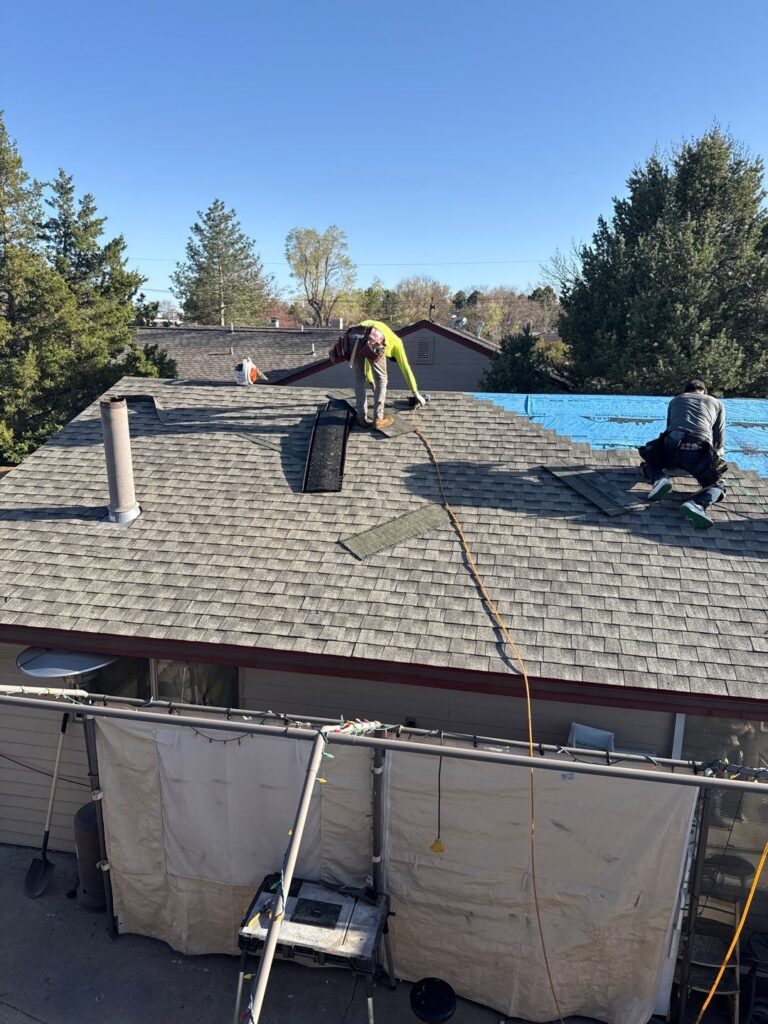When undertaking a roofing project, securing the proper permits isn’t just a bureaucratic formality—it’s a strategic safeguard for your property, your finances, and your peace of mind. A permit is a pivotal part of the planning process that ensures the work is done to the highest standards of safety, legality, and quality.
Compliance with Denver Building Codes: A Non-Negotiable Requirement
In Denver, Colorado, local building codes exist to uphold structural integrity and community safety. Permits ensure that roofing projects conform to these codes, which are regularly updated to reflect advancements in construction methods, environmental regulations, and safety protocols. A roofing permit guarantees inspections at key stages, ensuring that work is not only code-compliant but structurally sound.
Skirting this requirement can result in incomplete or dangerous construction that threatens occupants and could be legally challenged.
Legal Protection for Property Owners
Permits offer legal protection. Without them, homeowners may face costly penalties, forced dismantling of completed work, and liabilities if issues arise. Municipalities may even refuse to issue a certificate of occupancy until unpermitted work is corrected. In real estate transactions, unpermitted work can derail sales or lower property value due to doubts about quality and compliance.
A permitted project demonstrates responsible ownership and a commitment to legal, professional-grade improvements.
Insurance Eligibility Hinges on Permitted Work
Most homeowner’s insurance policies have strict clauses about structural modifications. If roofing work is done without a permit, insurers may reject future claims related to roof damage, even if it seems unrelated to the original project. Whether it’s storm damage, leaks, or fire hazards caused by faulty electrical conduit installed during the re-roof, the absence of a permit can void coverage.
Securing a permit is a smart financial move—it ensures eligibility for payouts and shields against liability.
Boosting Long-Term Property Value
Unpermitted work devalues a property. Home inspectors and appraisers look for documentation of compliance. Buyers often request proof that major projects like roofing were performed according to local codes. If not, the property may be appraised for less or lose prospective buyers altogether.
Conversely, documented, permitted improvements can increase market value and demonstrate the use of certified contractors and high-quality materials.
Project Efficiency Through Proper Planning
While obtaining a permit may appear time-consuming, it often accelerates project completion by forcing detailed planning from the outset. Permit applications require architectural drawings and materials documentation, pushing roofing contractors to fully scope the job before work begins. This early clarity reduces delays caused by overlooked code violations or incorrect installations.
Inspections serve as built-in quality checkpoints that prevent costly mistakes and rework later in the process.
Community Safety and Standards
Every city has a vested interest in preserving the safety, appearance, and uniformity of its neighborhoods. Denver’s permitting process ensures that new roofs align with aesthetic and structural norms, protecting the collective investment of the community. Permits prevent substandard construction that could become a blight or hazard in the neighborhood.
In this way, individual roofing projects contribute to the broader safety and appearance of the city.
Risk of Fines and Forced Remediation
Operating without a permit is not only risky—it’s expensive. Denver building authorities frequently levy fines against property owners who skip permits. Worse still, if unauthorized work is discovered, the city may demand it be dismantled and redone under permitted guidelines, multiplying costs.
This risk far outweighs the time or expense of acquiring a permit from the start.
Choosing the Right Roofing Partner
A reliable contractor will never bypass permits. They will handle the paperwork, schedule inspections, and ensure the project is compliant at every phase. Homeowners should be wary of contractors who suggest skipping permits to save time or money—it’s a red flag.
We at Tried and True Roofing, a leading roofing company in Denver, Colorado, emphasize full transparency and code adherence. Our team ensures every roofing project complies with all local regulations while delivering exceptional craftsmanship.
Peace of Mind Through Professional Oversight
Permits are not just about legality; they provide homeowners with peace of mind. Knowing that the project is being reviewed by building officials and meets safety standards is a comfort few other steps in the process can provide.
It confirms that both the contractor and the work performed are held accountable, resulting in safer, longer-lasting roofs.
CONCLUSION
Roofing permits are an indispensable part of any successful roofing project. They protect property owners legally and financially, enhance project efficiency, ensure compliance with Denver building codes, and support community safety. Any professional roofing endeavor should begin with securing the appropriate permits—a step that elevates the quality, value, and longevity of the final result. When it’s time for roofing in Denver, work only with roofers who understand the critical importance of getting it right from the start.


